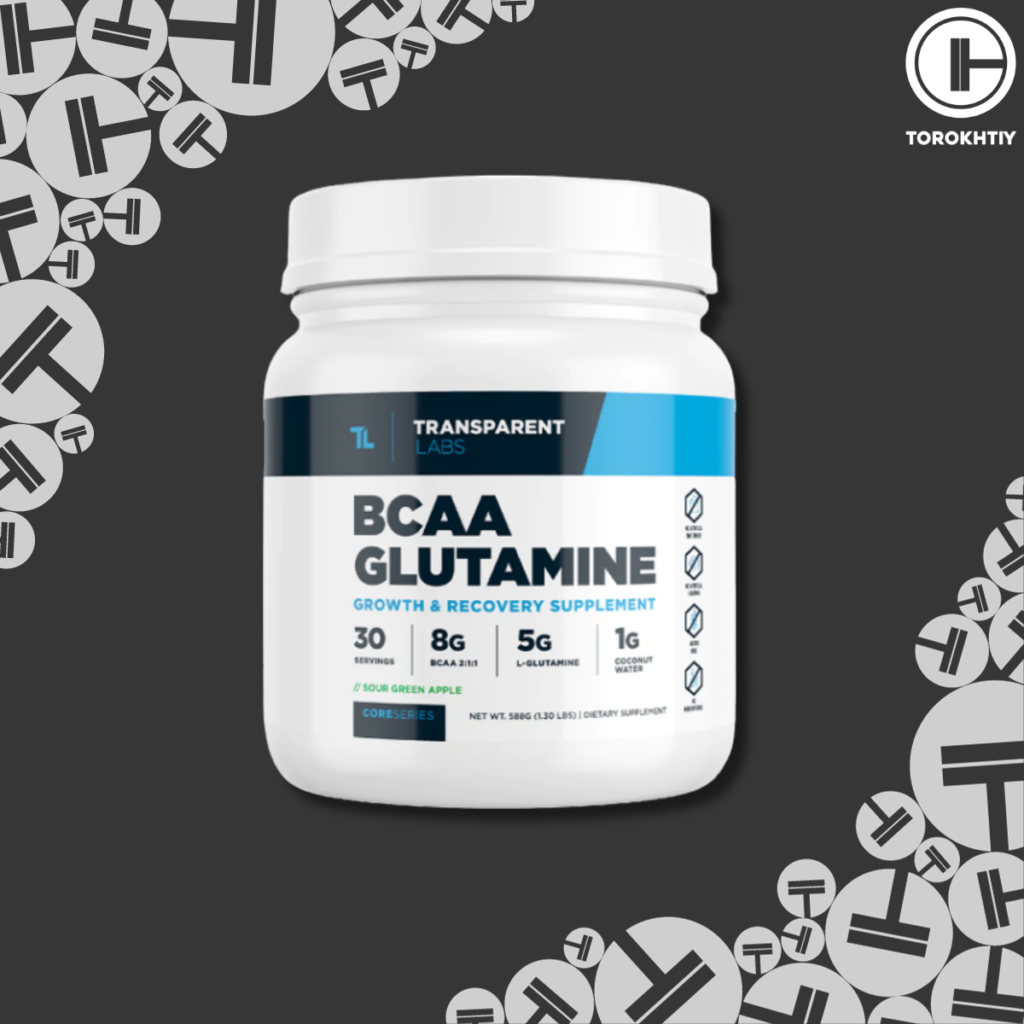When Is The Best Time To Take Glutamine?
L-glutamine is the most abundant amino acid found in the human body, with roles in immune health and intestinal wall integrity. In certain stressful situations, the need for glutamine is greater than the amount that the body can naturally produce making supplementation warranted.
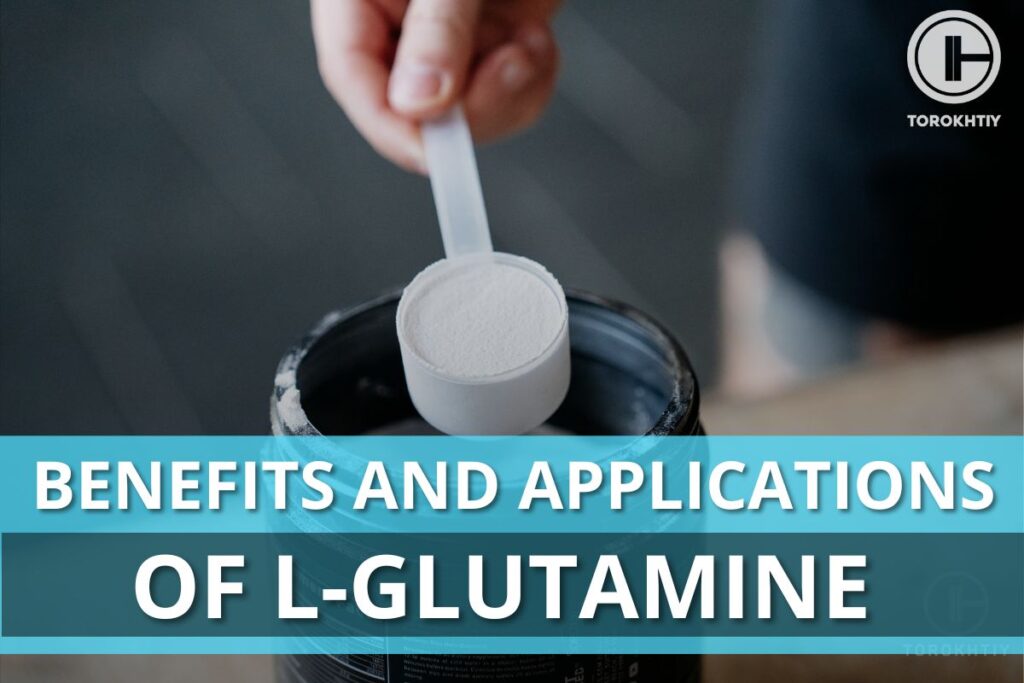
But, what are the benefits and how long does L-glutamine take to work? We’ve discussed the best time to take L-glutamine, the possible benefits, and how to take it below.
Best time to take L-Glutamine – There isn’t necessarily a best time of day to take glutamine, with higher doses and multiple dosing regimens being well tolerated. Glutamine has several positive applications when demand is increased in stressful situations such as illness, injury, and surgery. Under normal situations, supplementation isn’t needed.
What Is Glutamine?
Glutamine is an amino acid produced by the body in abundant amounts. It’s also found in food and commonly used as a supplement for its purported benefits.
Like most amino acids, glutamine has two forms: L-glutamine and D-glutamine. Most of the glutamine found in living organisms and food is L-glutamine which is the form we’ll mostly be talking about today.
Glutamine is found in most high-protein foods such as beef, pork, poultry, and milk. It’s produced by the body in large amounts making it the most abundant amino acid in the human body.
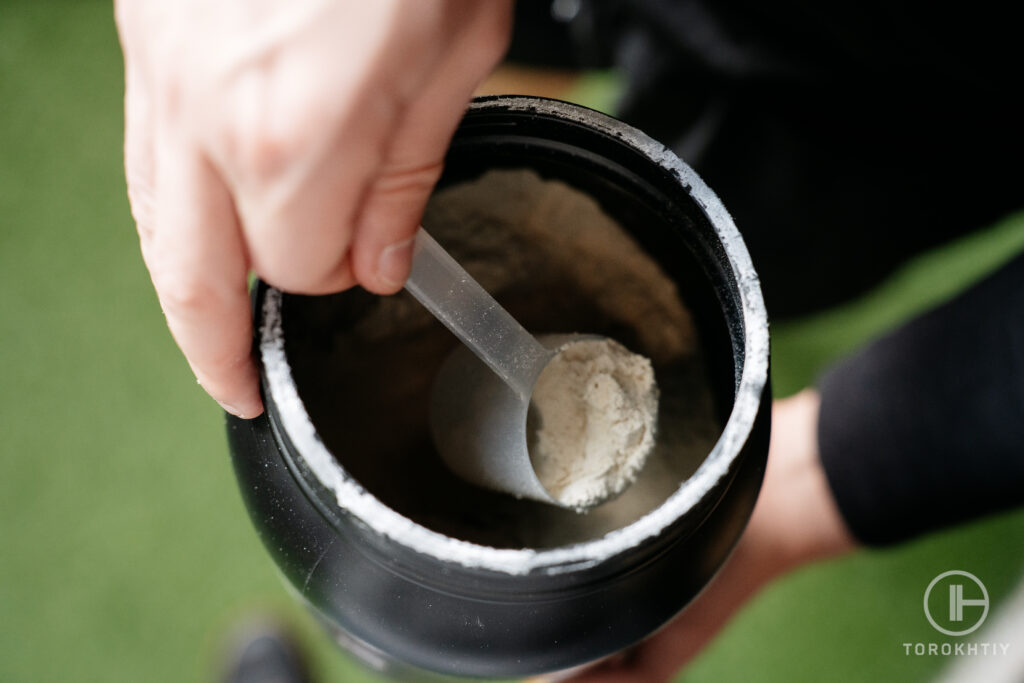
Whilst glutamine is considered as a non-essential amino acid for the most part, there are times when the body requires more than it can produce. In these instances, glutamine is considered as conditionally essential. We’ll go into more specifics regarding this below.
For What Purposes Can a Glutamine Supplement Be Useful?
Under normal circumstances, glutamine is produced in large amounts by skeletal muscle Intramuscular glutamine represents approximately 50-60% of total free amino acids, with 80% of the body’s glutamine found in skeletal muscle.
When released into the bloodstream, glutamine provides energy for several immune cells, liver cells, and intestinal cells. This means it has a central role in the function of these organs and systems under normal conditions.
Glutamine production is plentiful under normal conditions meaning supplementation isn’t needed.

During certain stressful situations, the body’s reliance on glutamine goes up. This leads to demand exceeding supply which then makes glutamine conditionally essential. In these situations, supplementing would be warranted and provide some added benefits.
1. Better Intestinal Health
Glutamine plays a central role in intestinal health, with a large proportion used by our intestinal cells for a variety of functions including normal cell growth and maintenance of the intestinal wall integrity. The intestines are part of the digestive system, with many cells involved in several immune responses and trillions of bacteria that live in the intestines.
Glutamine helps to maintain the integrity of the intestinal wall, protecting against a leaky gut. This stops harmful bacteria and toxins moving from your intestines into your bloodstream and may contribute to a variety of health issues including irritable bowel syndrome, bloating, and food sensitivities.
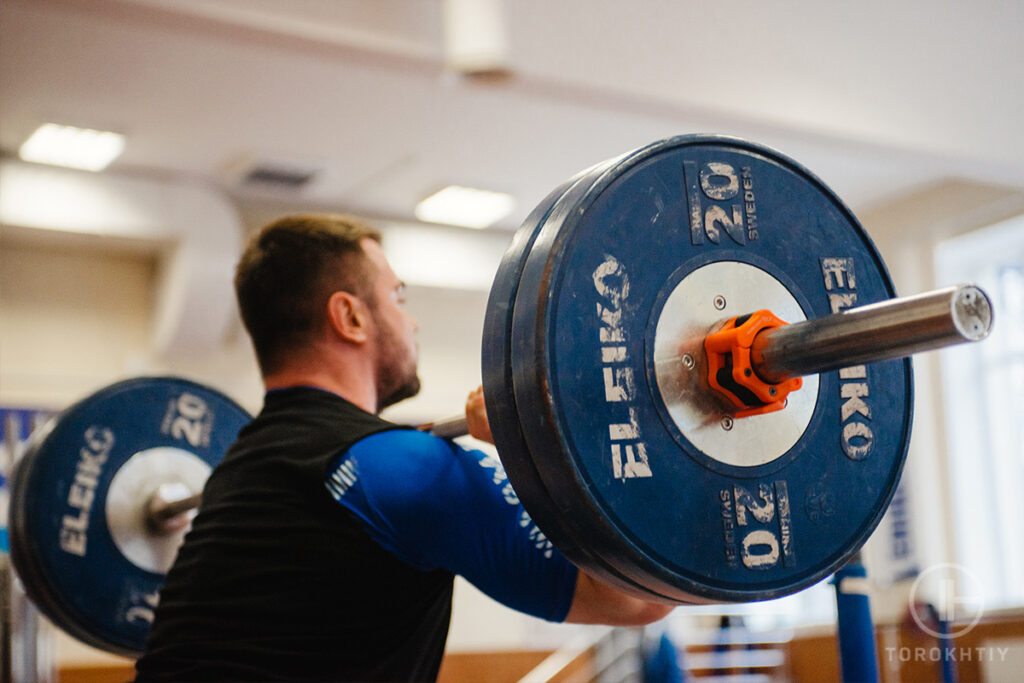
Additionally, glutamine may help to lower intestinal inflammation and therefore indirectly help reduce the incidence of Crohn’s disease, ulcerative colitis, and colorectal cancer. It’s important to note that research is still developing, with most research results currently on mice.
Out of all the proposed benefits of glutamine, the ones on intestinal health have the strongest body of supporting research. This makes improved intestinal health one of the main benefits of supplementation.
2. Improved Immune Function
Glutamine is important for cell proliferation which is when cells grow and divide to regenerate tissues, or mount an immune response for example.
In order to fight infection and inflammation, stimulated immune cells such as neutrophils, macrophages, and lymphocytes need to proliferate to mount a suitable immune response. During this time, the body’s demand for glutamine is increased meaning blood levels decrease as the cell’s demands overtake the dietary supply.
It’s during this time that glutamine would become conditionally essential, with major injuries, burns, and surgeries all shown to decrease blood glutamine levels. Glutamine supplementation has also been shown to lower infection rates following prolonged, intense exercise where immunosuppression is seen.
Without suitable supplementation, the function of the immune system may be compromised. Studies looking at the effects of glutamine have shown better wound healing, shorter hospital stays, and reduced medical costs compared to no supplementation.
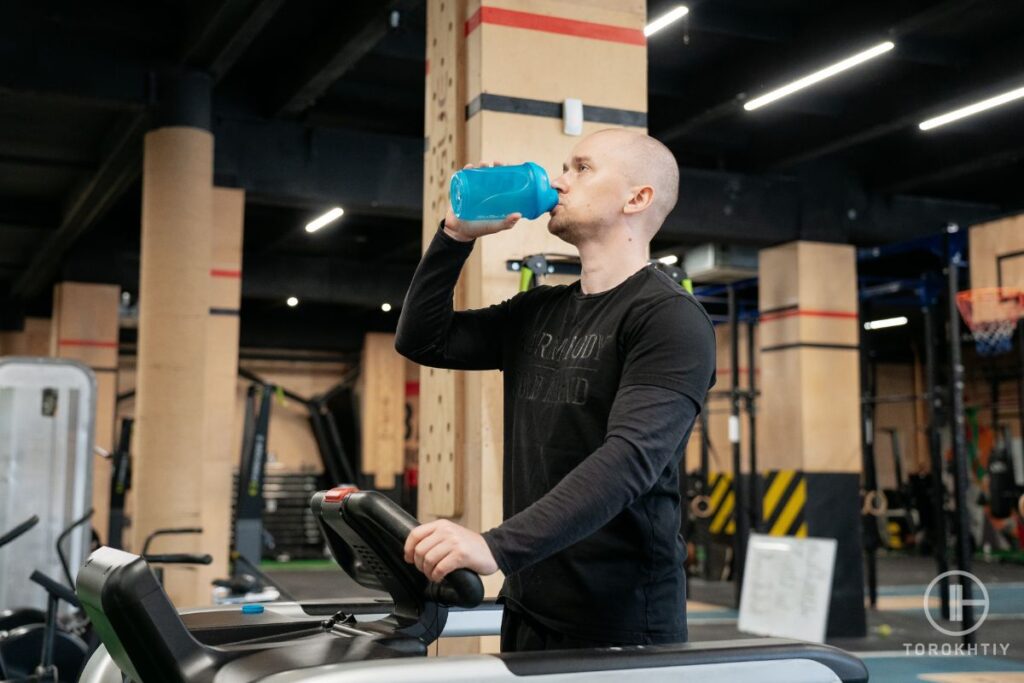
Note that there is limited support for the benefits of glutamine in healthy individuals with normal immune system function. The beneficial applications of glutamine for immune function seem to be in the specific situations described above. Normally, glutamine needs are well met through the diet and the body’s natural production.
Along with intestinal health, improved immune function also seems to be a well-proven benefit of glutamine supplementation but only when the immune system is compromised.
3. May Help With Muscle Recovery Following Intense Exercise
During intense exercise, muscle-burning sensations caused by the build-up of metabolites usually disappear shortly after you stop. In the days following, it’s common to feel muscle pain even when you’re not exercising. This is known as delayed onset muscle soreness (DOMS).
Prolonged, strenuous exercise also reduces plasma glutamine concentrations so it makes sense that glutamine supplementation may help to reduce the accompanying muscle soreness and DOMS. With this, you may be asking when to take L-glutamine for muscle recovery.
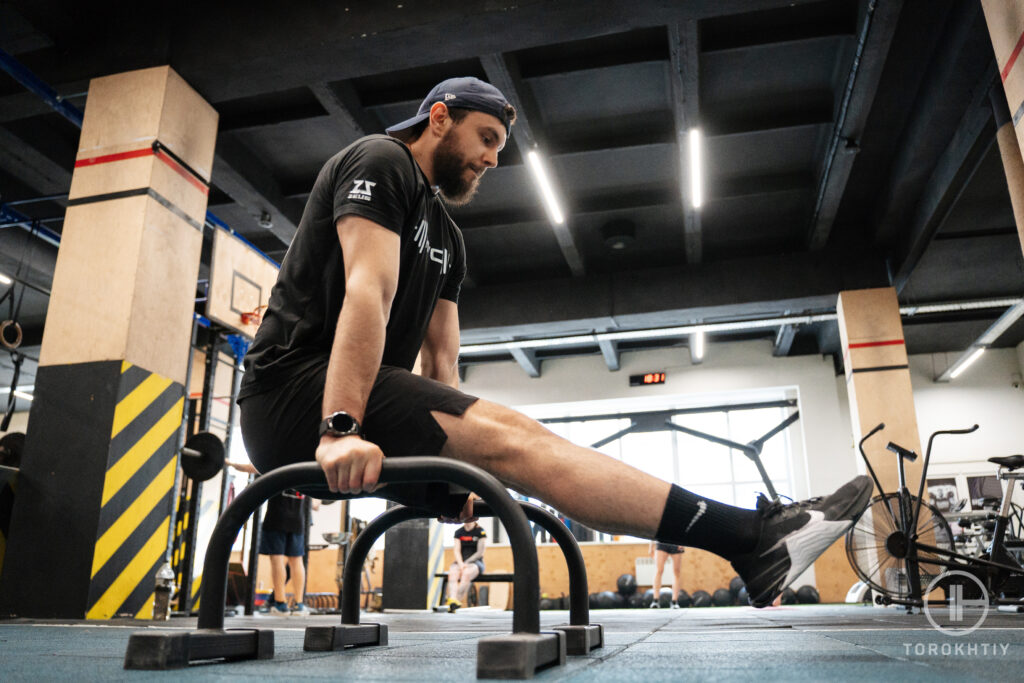
However, in reality this isn’t the case, with a big difference between orally ingested glutamine and that naturally produced by the body. What seems to happen is that most of the additional glutamine is excreted before increasing plasma concentration significantly.
It’s clear glutamine concentrations are reduced following intense exercise but supplementation doesn’t seem to meaningfully increase plasma levels to help with DOMS. Focus on adequate daily protein intake to help with recovery.
4. May Help Support Brain and Central Nervous System Functions
In the central nervous system (CNS), the brain uses glutamine to help generate inhibitory and exhibitory neurotransmitters. These are chemical messengers that allow the cells to communicate and activate vital processes needed to sustain life such as breathing, digesting food, moving and thinking.
With this in mind, glutamine supplementation may help to support brain and CNS functioning through improved neurotransmitter generation. Whilst research is still inconclusive, glutamine may also help in the treatment of neurodegenerative diseases such as Alzheimer’s.
Although limited, some research suggests a role for glutamine in improving mood, with studies showing links between glutamine deficiency and depressive behaviors. It should be noted that most of the research has been done on animals meaning it’s still highly speculative whether the same could be shown in humans.
The effects of glutamine supplementation on brain and CNS function are less conclusive, with most beneficial research shown using animal lab models. Under chronic disease conditions, glutamine supplementation may be proven useful but more research is definitely needed before definitive conclusions can be drawn.
What Is the Best Time to Take Glutamine?
When it comes to timing, a lot of supplements need to be taken at certain times of the day to have the best effect or even any effect at all. So, when should you take glutamine? Well, things are actually quite simple. It really doesn’t matter when you take it as long as you are consistent with the daily intake.
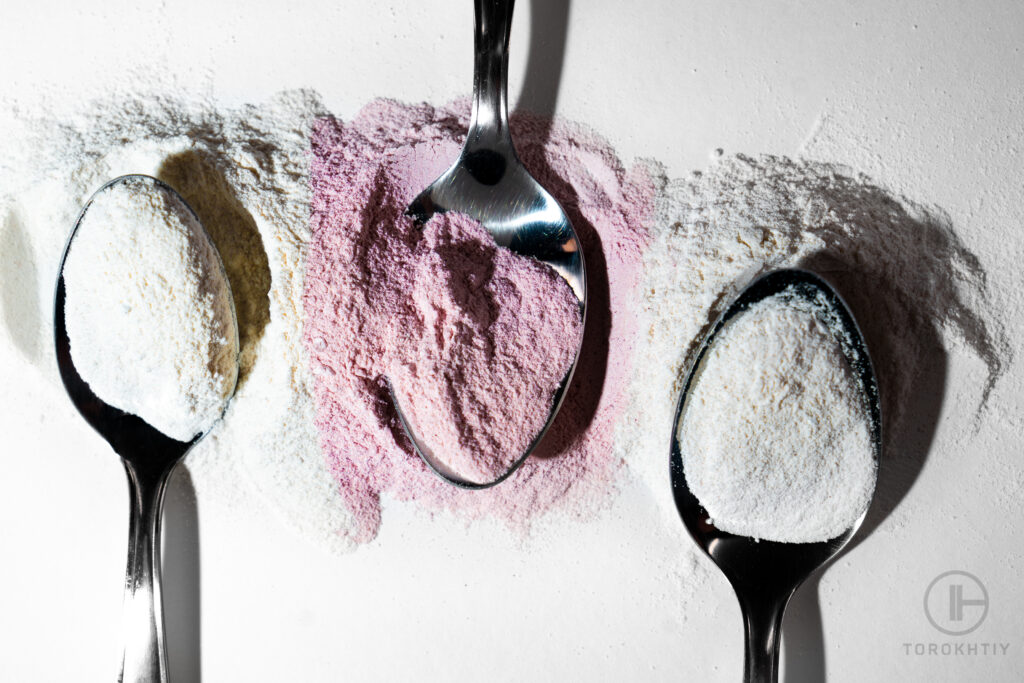
Whilst there isn’t really a best time of day to take glutamine, taking it first thing in the morning or before bed may be a good idea as it allows you to develop a consistent routine and helps you remember to take it daily. Glutamine can also be taken twice a day if required in the morning, evening, or following stressful exercise sessions where glutamine levels tend to be lower.
Should Glutamine Be Taken With Food or on an Empty Stomach?
Most supplements are better absorbed when taken with food, so it’s recommended to consume them alongside a normal meal. A good example would be fat-soluble vitamins that should be taken with a meal containing fat. Other supplements such as fish oils seem to be better tolerated by the GI tract when taken with food.
L-glutamine is an amino acid that needs to be absorbed through the intestinal tract to take effect. High protein foods such as meat and fish also have high amounts of amino acids in them and need to be absorbed using the same method. For this reason, taking L-glutamine with high-protein foods might not be the best idea.
With this, we recommend taking L-glutamine on an empty stomach. Make sure you are consistent with the daily intake and look to avoid intake alongside high protein foods. Specific timing doesn’t really matter.
Our Recommended Glutamine
Transparent Labs created the CoreSeries BCAA Glutamine powder as a repair and recovery aid. Each 19.6-gram serving combines three popular compounds, with 5 grams of glutamine, 8 grams of BCAAs, and 1 gram of coconut water powder.
It’s a super clean source of glutamine, with no artificial sweeteners, colorings, and preservatives. It’s also GMO and gluten-free. You can choose from four flavors which include sour green apple, tropical punch, strawberry lemonade, and blue raspberry.
FAQ
Should I Take L-Glutamine Morning or Night?
The best time to take L-glutamine really depends on your general lifestyle. Glutamine should be taken on an empty stomach which then brings your eating schedule into account.
As glutamine is mainly used during times of stress when the body can’t produce enough to satisfy its demands, take the glutamine following stressful events whether that’s morning or night.
Can I Take L-Glutamine Everyday?
You don’t really need to focus on how often or how long should you take l glutamine. It’s well tolerated in high doses of up to 40 grams daily and consuming glutamine every day is totally fine. Possible mild side effects may include bloating, dizziness, and mild stomach pain.
L-glutamine can be taken as required with no need to worry about taking too much or potential side effects. It’s generally considered a very safe supplement.
Can I Take L-Glutamine Without Working Out?
Yes, you can. L-glutamine has several important roles in the body during times of stress, which doesn’t just include resistance exercise or strenuous activity.
Even during rest days, glutamine may play a role in immune health, intestinal integrity, and brain functioning.
Should You Take Glutamine Before or After a Workout?
Many people wonder how long does glutamine take to work? While timing doesn’t really matter in terms of the proven beneficial effects, taking it after a workout when plasma levels are low would make the most sense. However, as we’ve discussed above, this doesn’t seem to work as you might expect.
Conclusion
Glutamine is a conditionally essential amino acid produced by the body in large amounts. It seems to have beneficial applications for intestinal and immune health during times of stress where glutamine can’t be adequately produced in the body. In healthy individuals, glutamine supplementation isn’t needed.
The timing of intake doesn’t matter, with high daily doses of 40-50 grams well tolerated. Taking glutamine on an empty stomach following exercise where plasma levels are lowered makes sense but isn’t needed.
Have you taken glutamine before? Did you notice any benefits of taking it? When do you take it and why? Let us know below!
Also read:
- Foods High in L Arginine
- Best Time to Take L-Glutamine for Weight Loss
- L Carnitine Tartrate vs Acetyl L Carnitine
- Best Time to Take L-Carnitine
- Taking L Carnitine Without Exercising
- L Carnitine for Weight Loss
- Best L Carnitine Supplement
- L Arginine Weight Loss
References
- Glutamine, Wikipedia, https://en.m.wikipedia.org/wiki/Glutamine (accessed May 22, 2023).
- Mittendorfer B, Volpi E, Wolfe RR. Whole body and skeletal muscle glutamine metabolism in healthy subjects. Am J Physiol Endocrinol Metab. 2001;280(2):E323-E333. doi:10.1152/ajpendo.2001.280.2.E32
- Kim MH, Kim H. The Roles of Glutamine in the Intestine and Its Implication in Intestinal Diseases. Int J Mol Sci. 2017;18(5):1051. Published 2017 May 12. doi:10.3390/ijms18051051
- Rao R, Samak G. Role of Glutamine in Protection of Intestinal Epithelial Tight Junctions. J Epithel Biol Pharmacol. 2012;5(Suppl 1-M7):47-54. doi:10.2174/1875044301205010047
- Rastgoo S, Ebrahimi-Daryani N, Agah S, et al. Glutamine Supplementation Enhances the Effects of a Low FODMAP Diet in Irritable Bowel Syndrome Management. Front Nutr. 2021;8:746703. doi:10.3389/fnut.2021.746703
- Calder PC, Yaqoob P. Glutamine and the immune system. Amino Acids. 1999;17(3):227-241. doi:10.1007/BF01366922
- Walsh NP, Blannin AK, Robson PJ, Gleeson M. Glutamine, exercise and immune function. Links and possible mechanisms. Sports Med. 1998;26(3):177-191. doi:10.2165/00007256-199826030-00004
- Castell LM, Newsholme EA. The effects of oral glutamine supplementation on athletes after prolonged, exhaustive exercise. Nutrition. 1997;13(7-8):738-742. doi:10.1016/s0899-9007(97)83036-5
- Agostini F, Biolo G. Effect of physical activity on glutamine metabolism. Curr Opin Clin Nutr Metab Care. 2010;13(1):58-64. doi:10.1097/MCO.0b013e328332f946
- Albrecht J, Sonnewald U, Waagepetersen HS, Schousboe A. Glutamine in the central nervous system: function and dysfunction. Front Biosci. 2007;12:332-343, doi:10.2741/2067
- Lee Y, Son H, Kim G, et al. Glutamine deficiency in the prefrontal cortex increases depressive-like behaviors in male mice. J Psychiatry Neurosci. 2013;38(3):183-191. doi:10.1503/jpn.120024
Why Trust Us?
With over 20 years in Olympic Weightlifting, our team does its best to provide the audience with ultimate support and meet the needs and requirements of advanced athletes and professional lifters, as well as people who strive to open new opportunities and develop their physical capabilities with us.
By trusting the recommendations of our certified experts in coaching, nutrition, dietology, and sports training programming, as well as scientific consultants, and physiotherapists, we provide you with thorough, well-considered, and scientifically proven content. All the information given in the articles concerning workout programming, separate exercises, and athletic performance, in general, is based on verified data. We ensure that you can rely on our professionals’ pieces of advice and recommendations that can be treated as personalized ones which will benefit you and fully meet your needs.
The product testing process is described in more detail here
Author: David Sasha Schulz
Doctor of Chiropractic, BSc Human Biology, CSCS
Strength coach (CSCS) – 10 years
Sasha is a Chiropractor and Kinesiologist practicing in Kelowna, BC, Canada. He has been practicing Chiropractic since 2019, integrating manual therapy, strength training and programming principles, and nutritional strategies to get his patients optimal results. He currently scratches the competitive itch in fitness, and the occasional endurance race, and plays golf and snowboards for fun. He has an interest in all strength and fitness-related sports.

